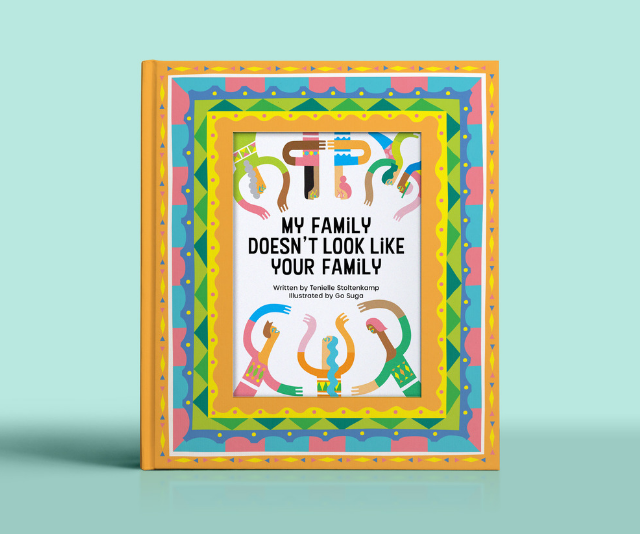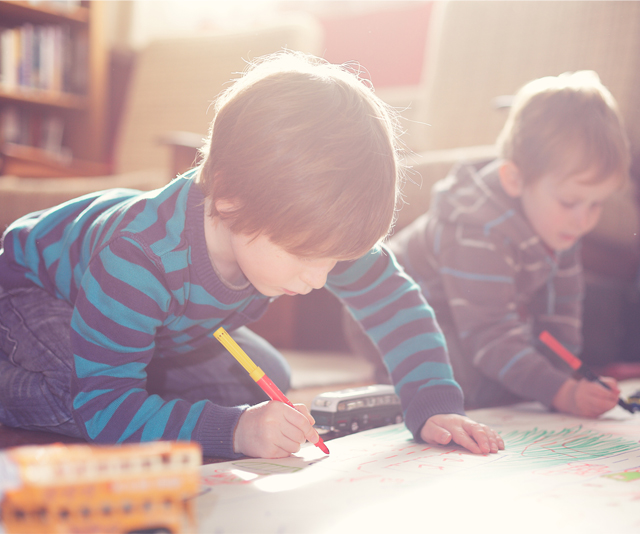6 childrens’ books that celebrate family diversity
Challenging the norms, one book at a time.
By Tenielle Stoltenkamp
For two years I spent my Fridays with an incredible young girl who I met through The Pyjama Foundation – an organisation that pairs children in foster care with volunteers to read and learn together.
Whenever I searched for new books for her I was struck by the number of children’s books that depicted one-dimensional, traditional families.
I’m surrounded by close friends and family with young children who don’t look like that. They’re multi-cultural families or families with third culture kids, they’re adopted or blended families, same-sex or single parents, carers…that’s the reality of the incredible tapestry of the world we live in.
Their homes are filled with as much love as any other home and my aim for this book is that every child can see their own family on these pages and know that – even though their family may look or do things differently – they have a place where they belong.
Why are books about diversity so important right now
Kids live ‘difference’ every day. They’re naturally curious and will have questions about the world around them. How we, as adults, respond to these questions can shape their view on diversity.
READ NEXT: 8 ways to teach kids good manners. Continues after …

Australian author, Tenielle Stoltenkamp has released a brand new children’s book, My Family Doesn’t Look Like Your Family
Books about diversity help establish that difference isn’t a negative.
Diversity adds colour and uniqueness to our lives and our society and is something we should all embrace and celebrate.
When we talk about the things that make us unique, we identify commonalities across cultures, race, ability, or religion – which enables us to shift our conversations about diversity to the things that unite us, rather than divide us.
You’ll find some great children’s books which challenge the norms in the gallery below …
6 books that celebrate diverse families
Family forest, Kim Kane and Lucy Masciullo: This book showcases a family with half, whole and step siblings as well as different parental relationships. Family Forest explains blended families and diverse family representation in a fun and engaging way rather than positioning it as an issue.
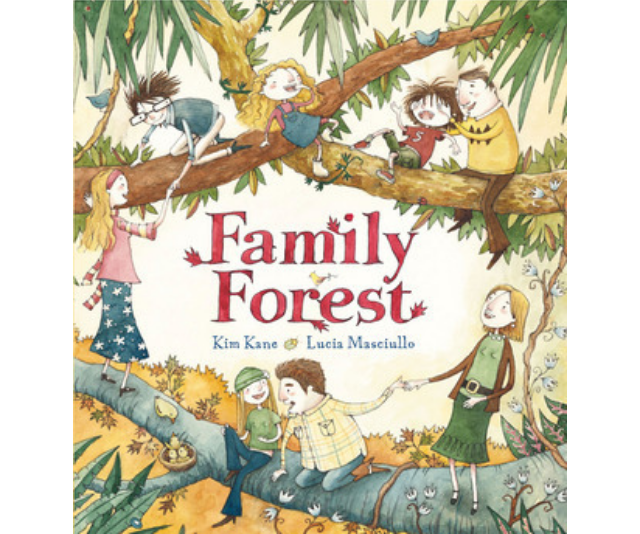
The Lost Girl, Ambelin Kwaymullina and Leanne Tobin: This story details a story about a young Indigenous girl who has lost her way, and is guided home by Mother Nature. The book captures the beauty of Australia’s natural landscape and shows that extended families, such as uncles, aunts and grandparents, can be just as important for a child’s sense of belonging.
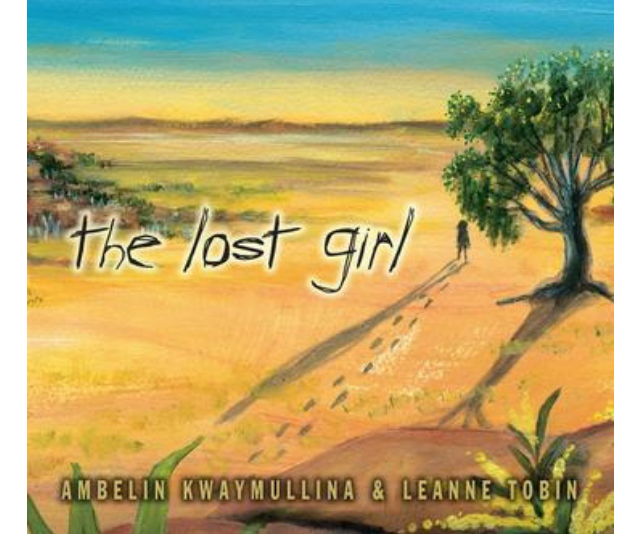
I’m Australian Too, Mem Fox: Mem Fox celebrates Australia’s incredible multicultural heritage in this beautiful book that explores the different nations that call Australia home. With engaging illustrations, this book is a great way to introduce kids to the concept of diversity and acceptance.
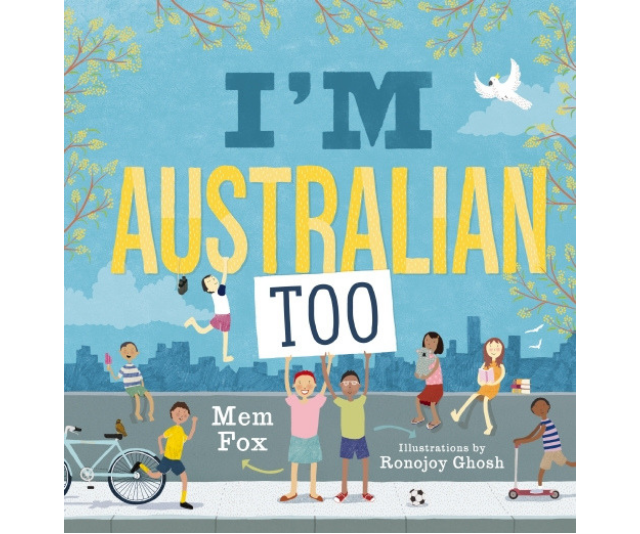
Enid and Her Two Mums, Jessica Skogstad: The story narrates a young girl who notices that her family looks different to other families she sees. Enid has two mothers, and begins to wonder what makes up a normal family. The first of Jessica’s Skogstaf’s titles is a heart-warming story that highlights the diversity of families, but also the similarities and unconditional love that different family units contain.
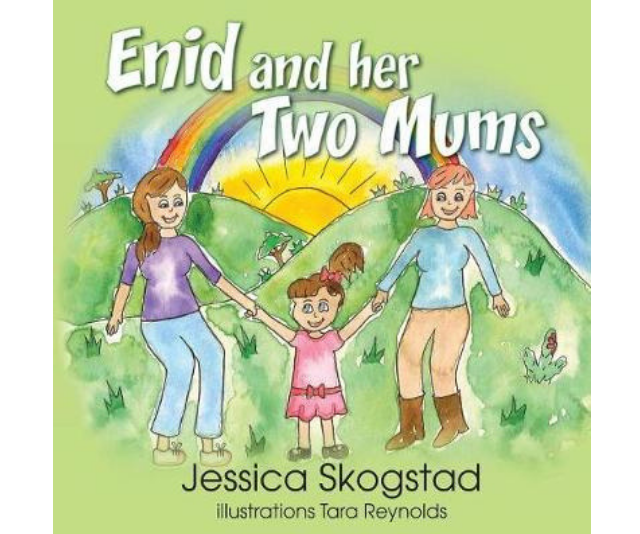
Who’s Got a Normal Family? Belinda Nowell: The book takes readers on a journal through different families – foster families, families with no dads to families with grandparents as carers – proving that a family is a family, regardless of who it includes. Nowell’s first book highlights that there is no such thing as a ‘normal family’.
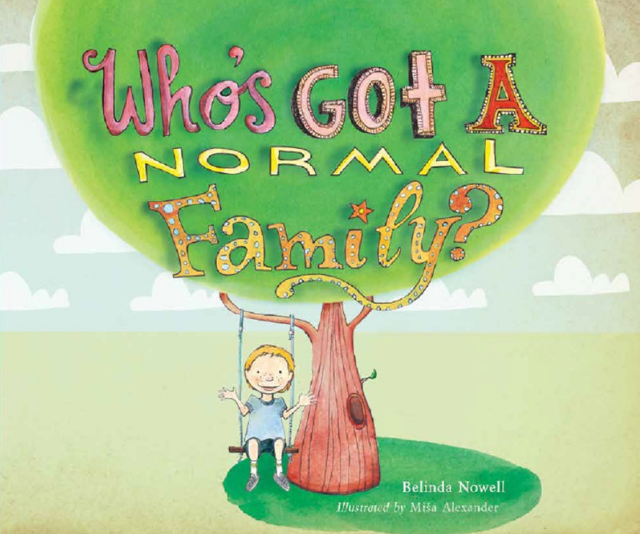
My Family Doesn’t Look Like Your Family, Tenielle Stoltenkamp: Challenging the status quo of today’s ‘traditional family,’ the book uses colourful illustrations that depict gender-fluid human figures to encourage conversations about the things that make every family unique. The book deliberately excludes titles, roles, race and gender to show that every family looks and does things differently.
